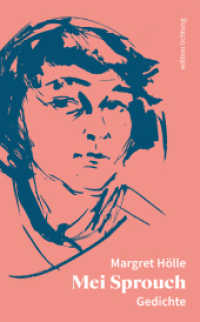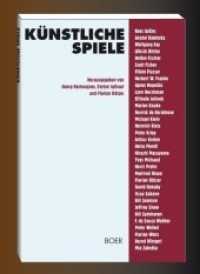- ホーム
- > 洋書
- > 英文書
- > Literary Criticism
Full Description
Antigone's Daughters? provides the first detailed discussion in English of six well-known Portuguese women writers, working across a wide range of genres: Florbela Espanca (1894-1930), Irene Lisboa (1892-1958), Agustina Bessa Luís, (1923- ), Natália Correia (1923-93), Hélia Correia (1949 -) and Lídia Jorge (1946 - ). Together they cover the span of the 20th century and afford historical insights into the complex gender politics of achieving institutional acceptance and validation in the Portuguese national canon at different points in the 20th century.
Although a patrilinear evolutionary model visibly structures national literary history in Portugal to the present day, women writers and critics have not generally sought to replace this with a matrilinear feminist counter-history. The unifying metaphor that the authors adopt here for the purpose of discussing Portuguese women's ambivalent response to female genealogy is the classical figure of Antigone, who paradoxically sacrifices her own genealogical continuity in the name of defending family and kinship, while resisting the patriarchal pragmatics of state-building. Should women writers, faced with the absence of a female tradition, posit a woman-centred place outside the jurisdiction of male genealogy, however strategically essentialist that place may be, or should they primarily eschew fixed sexual identity to act as unnameable saboteurs, undoing the law of patriarchal tradition from within?
Contents
Acknowledgments
Introduction
1. Florbela Espanca and Female Genius: Alone of All Her Sex?
2. Irene Lisboa: Minding the Gender Gap
3. The Case of the Missing Body: Allegories of Authorship in Agustina Bessa Luís
4. Matriarchal Precedents: Thus Spoke Natália Correia
5. Giving Up Whose Ghost in the Works of Hélia Correia
6. Sexual/Textual Re-Visions in Lídia Jorge
Conclusion








